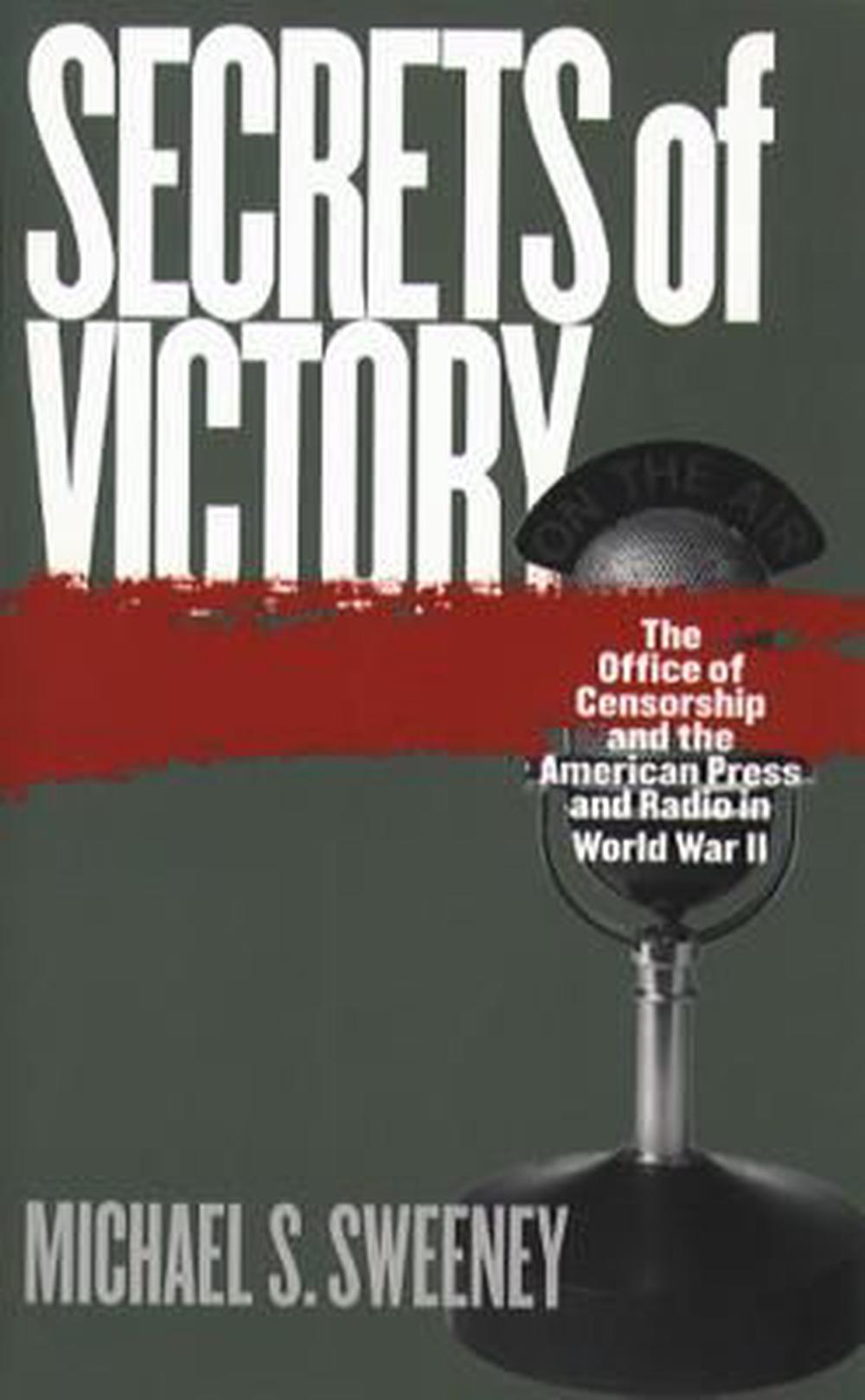
Secrets of Victory: The Office of Censorship and the American Press and Radio in World War II
by Michael S. Sweeney
During World War II, the civilian Office of Censorship supervised a huge and surprisingly successful program of news management: the voluntary self-censorship of the American press. In January 1942, censorship codebooks were distributed to all American newspapers, magazines, and radio stations with the request that journalists adhere to the guidelines within. Remarkably, over the course of the war no print journalist, and only one radio journalist, ever deliberately violated the censorship code after having been made aware of it and understanding its intent.
"Secrets of Victory" examines the World War II censorship program and analyzes the reasons for its success. Using archival sources, including the Office of Censorship's own records, Michael Sweeney traces the development of news media censorship from a pressing necessity after the attack on Pearl Harbor to the centralized yet efficient bureaucracy that persuaded thousands of journalists to censor themselves for the sake of national security. At the heart of this often dramatic story is the Office of Censorship's director Byron Price. A former reporter himself, Price relied on cooperation with—rather than coercion of—American journalists in his fight to safeguard the nation's secrets.
Paperback
English
Brand New
Publisher Description
During World War II, the civilian Office of Censorship supervised a huge and surprisingly successful programme of news management: the voluntary self-censorship of the American press. In January 1942, censorship codebooks were distributed to all American newspapers, magazines and radio stations with the request that journalists adhere to the guidelines within. Remarkably, over the course of the war no print journalist, and only one radio journalist ever deliberately violated the censorship code after being informed of its intent. ""Secrets of Victory"" examines the World War II censorship programme and analyzes the reasons for its success. Using archival sources, including the Office of Censorship's own records, Michael Sweeney traces the development of news media censorship from a pressing necessity after the attack on Pearl Harbour to the centralized yet efficient bureaucracy that persuaded thousands of journalists to censor themselves for the sake of national security. At the heart of this often dramatic story is the Office of Censorship's director Byron Price. A former reporter himself, Price relied on the cooperation rather than coercion of American journalists in his fight to safeguard the nation's secrets.
Author Biography
A former reporter and editor, Michael S. Sweeney is assistant professor of communication at Utah State University in Logan.
Table of Contents
Acknowledgments Introduction Chapter 1. Squarely in the Lap of the Director of Censorship: The Origins and Scope of World War II Censorship Chapter 2. The Censor Has Written Me a Very Stern Letter: Establishing Voluntary Censorship Chapter 3. A Miscellany of Volunteer Firemen: Censorship and the Army, the Navy, and the White House Chapter 4. Umpires Have Called the Game for Reasons I Cannot Speak Of: Radio Censorship Chapter 5. Pearson Said He Was Going to Tell Things He Could Not Write: Drew Pearson and His Secrets Chapter 6. The President Is Making a Trip: The Press and the President's Travels Chapter 7. The Highest Considerations of National Security: Military Secrets and the End of Censorship Conclusion Notes Bibliography Index
Review
"A highly readable book on an important and timely subject. Secrets of Victory is simply the best work I have read on the censorship of American newspapers and radio during World War II." - Stephen Vaughn; University of Wisconsin-Madison"
Long Description
During World War II, the civilian Office of Censorship supervised a huge and surprisingly successful program of news management: the voluntary self-censorship of the American press. In January 1942, censorship codebooks were distributed to all American newspapers, magazines, and radio stations with the request that journalists adhere to the guidelines within. Remarkably, over the course of the war no print journalist, and only one radio journalist, ever deliberately violated the censorship code after having been made aware of it and understanding its intent.Secrets of Victoryexamines the World War II censorship program and analyzes the reasons for its success. Using archival sources, including the Office of Censorship's own records, Michael Sweeney traces the development of news media censorship from a pressing necessity after the attack on Pearl Harbor to the centralized yet efficient bureaucracy that persuaded thousands of journalists to censor themselves for the sake of national security. At the heart of this often dramatic story is the Office of Censorship's director Byron Price. A former reporter himself, Price relied on cooperation with--rather than coercion of--American journalists in his fight to safeguard the nation's secrets.
Review Quote
This timely and important book about journalism, the media, and government control of information during wartime is highly recommended for academic and large public libraries. (Library Journal)
Promotional "Headline"
"Will gladden the hearts of anyone interested in communication history during critical periods in the 20th century. . . . A balanced, well-written account of how governments can handle the difficult task of preserving press freedom in wartime without jeopardizing national security."-- Political Communication
Details

